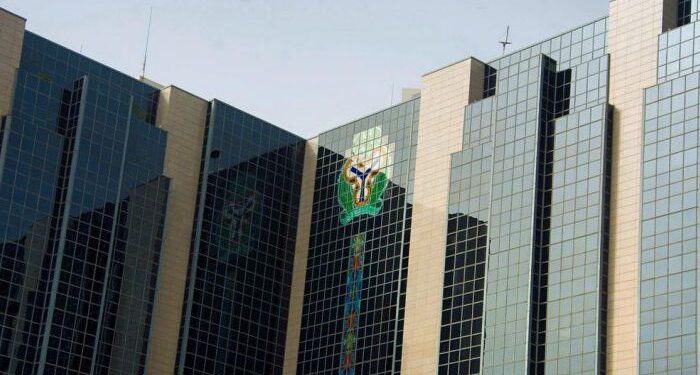The Central Bank of Nigeria (CBN) has announced a notable rebound in the value of the naira, attributing the currency’s rally to declining foreign exchange (FX) speculation and improved market stability. The bank confirmed that Nigeria’s external reserves have now surged to $43 billion, their highest level in more than two years, driven by strong oil earnings and renewed investor confidence.
In its latest financial update, the apex bank said that recent policy measures to curb speculative trading in the FX market have begun yielding tangible results. These include stricter monitoring of market participants, improved transparency in FX transactions, and coordinated interventions to ensure adequate supply of foreign exchange across official channels.

According to the CBN, the combination of rising oil prices, enhanced remittance inflows, and growing foreign portfolio investment has provided a cushion for the naira, which appreciated steadily over the past few weeks. Market data from the Nigerian Autonomous Foreign Exchange Market (NAFEM) showed that the naira traded stronger, averaging N1,460 per dollar, compared to over N1,520 per dollar recorded in previous weeks.
The apex bank attributed this positive development to increased confidence in the monetary policy direction under Governor Olayemi Cardoso, noting that tighter fiscal coordination and improved FX liquidity management have begun to stabilise the currency market.
A senior CBN official, speaking on condition of anonymity, stated that the interventions were designed to curb speculation and restore discipline in the FX ecosystem. “Our approach is to ensure that genuine demand is met through official channels while discouraging rent-seeking and speculative activities that distort the market,” the official said.
Governor Cardoso recently reaffirmed the CBN’s commitment to sustaining policies that promote exchange rate stability and price moderation. He explained that the central bank has adopted a data-driven strategy to manage liquidity, boost investor confidence, and encourage inflows into the official market.
“Our foreign exchange framework is being fine-tuned to enhance transparency and restore order in the market. The reforms are paying off, as seen in the strengthening of the naira and the growing level of reserves,” Cardoso stated.
The $43 billion reserves milestone marks a significant improvement from the $33 billion recorded earlier this year, reflecting better oil receipts and tighter control of illicit financial flows. Analysts have described this recovery as a signal of increased macroeconomic stability, with potential implications for inflation moderation and stronger foreign investor participation.
Commenting on the development, financial analyst and economist Dr. Tunde Aremu noted that the CBN’s success in reducing speculative pressures has been crucial in steadying the naira. “The speculative attacks that previously drove volatility have been curtailed through decisive actions. The rise in reserves shows that Nigeria is now better positioned to meet import and debt obligations while maintaining confidence in the economy,” he said.
He added that the positive momentum, if sustained, could attract additional foreign investments and help anchor inflation expectations. However, he cautioned that long-term stability will depend on continued fiscal discipline, structural reforms, and diversification of export earnings beyond crude oil.
Meanwhile, market watchers believe that the current appreciation trend reflects improved coordination between the CBN and fiscal authorities, particularly in implementing measures to boost non-oil exports and remittance inflows. The recent clampdown on illegal FX operators and unlicensed money changers has also played a key role in stabilising the market.
Banks and authorised dealers have reported a more orderly FX environment, with fewer instances of speculative hoarding and arbitrage. Traders say liquidity has improved across the market, while transaction backlogs continue to ease following the CBN’s clearance of outstanding obligations to foreign airlines and investors.
The CBN’s proactive measures, including the unification of exchange rates, improved transparency in FX reporting, and regular engagement with market stakeholders, have also contributed to restoring credibility in the market. The bank continues to assure the public that it remains focused on building a resilient and market-driven foreign exchange system that supports economic growth.
Looking ahead, the apex bank expressed optimism that the naira’s gains will be sustained through increased oil production, stable remittance inflows, and further expansion in foreign portfolio investments. It pledged to maintain a stable macroeconomic environment by continuing reforms that prioritise fiscal prudence, monetary stability, and investor protection.
As Nigeria’s foreign reserves climb to new highs, economists believe that the strengthened naira could help moderate import costs, support manufacturing, and ease inflationary pressures. However, they also caution that global oil price fluctuations and external shocks could still pose challenges in the medium term.
For now, the CBN’s success in boosting reserves and curbing speculation marks a turning point in Nigeria’s currency management efforts, offering renewed hope for long-term economic stability and investor confidence.
Support InfoStride News' Credible Journalism: Only credible journalism can guarantee a fair, accountable and transparent society, including democracy and government. It involves a lot of efforts and money. We need your support. Click here to Donate
